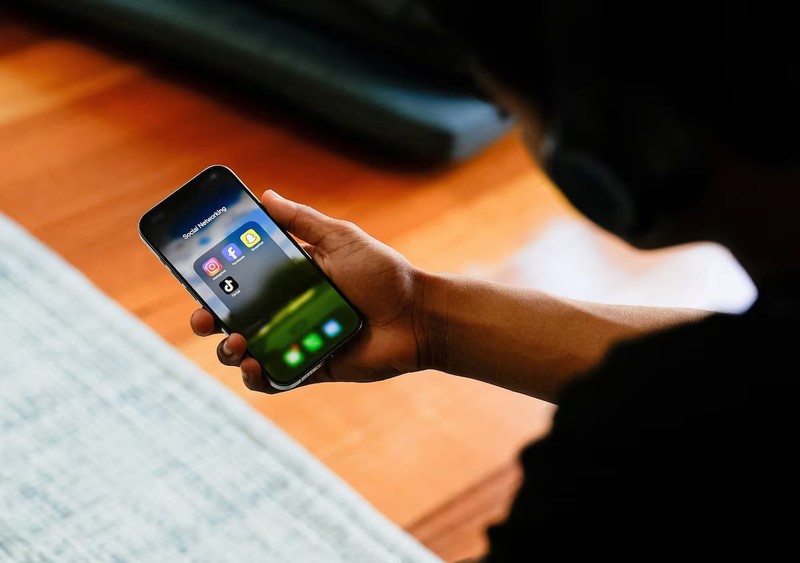Protecting children in the online environment
Australia has just become the first country to pass a bill banning children younger than 16 years from social media. With such a step considered unprecedented, Australia is a pioneer in tightening digital platform regulations to protect children in the online environment.
 |
| A high school student poses with his mobile phone showing his social media applications in Melbourne, Australia, November 28, 2024. |
According to the new bill passed by Australia’s House of Representatives, technology corporations must take appropriate and effective measures to stop minors under 16 from logging into social networks. Social platforms have 12 months to prepare before the law officially takes effect at the end of 2025.
Australia is not the only country tightening children's access to social networks. France has enacted a law banning children under 15 from using a social network without parental consent. Norway, Germany, Belgium and Italy also have age restrictions on children who can register for social media accounts.
By setting an age limit of 16 and not allowing exceptions, Australia has taken more drastic measures than any other country.
Australian Prime Minister Anthony Albanese affirmed that the law places the onus on social media platforms – not parents or young people – to take reasonable steps to ensure these protections are in place.
The government will introduce stronger penalties for online safety breaches, which digital platforms face fines of up to 49.5 million AUD for systemic breaches.
Experts say that the social platforms targeted by the bill include Snapchat, TikTok, Facebook, Instagram, Reddit and X.
Senator Maria Kovacic of the Australian Liberal Party described this as an important turning point, helping the country draw clear boundaries so that the power and influence of large technology corporations do not get out of control.
The approval of the bill responds to the great concerns of Australians. According to the Australian Cyber Security Centre, minors in this country spend an average of 14.4 hours per week online.
Undeniably, social networks bring some benefits to children, such as entertainment, news updates, and maintaining connections with friends, but they also pose unpredictable harms. The increasing popularity has unintentionally turned social networks into “weapons” for bullies, tools for online scammers, and a cause of anxiety and pressure for children.
Therefore, Australian parents and authorities support tighter control over children's use of social networks.
A recent YouGov survey found that 77% of Australians back the under-16 social media ban.
Professor Uri Gal at the University of Sydney (Australia) emphasised that limiting minors' use of social networks is a necessary step to protect their mental health.
However, Prime Minister Anthony Albanese's government may face many challenges in implementing the new regulations. As soon as it was passed, the bill faced opposition from many tech giants.
Social network X raised concerns that the bill will negatively impact the human rights of children and young people, including their rights to freedom of expression and access to information.
Meta, the parent company of Facebook and Instagram, said it was “concerned” about the process, which “rushed the legislation through while failing to properly consider the evidence, what industry already does to ensure age-appropriate experiences, and the voices of young people.”
Some technology companies said the bill lacked important information about how it would be implemented.
UNICEF Australia policy chief Katie Maskiell said young people need to be protected online but also included in the digital world.
"This ban risks pushing children into increasingly covert and unregulated online spaces as well as preventing them from accessing aspects of the online world essential to their wellbeing," she said.
Protecting children from dangers in cyberspace is not only a difficult problem for Australia but also for many countries around the world. A UNICEF poll of 30 countries found that one in three young people said they had been a victim of online bullying, with one in five reporting having skipped school due to cyberbullying and violence.
New regulations passed by the Australian House of Representatives set a new standard for social responsibility for technology companies while affirming Australia's pioneering role in establishing a "shield" to protect children from risks in the online environment.
NDO





READER COMMENTS